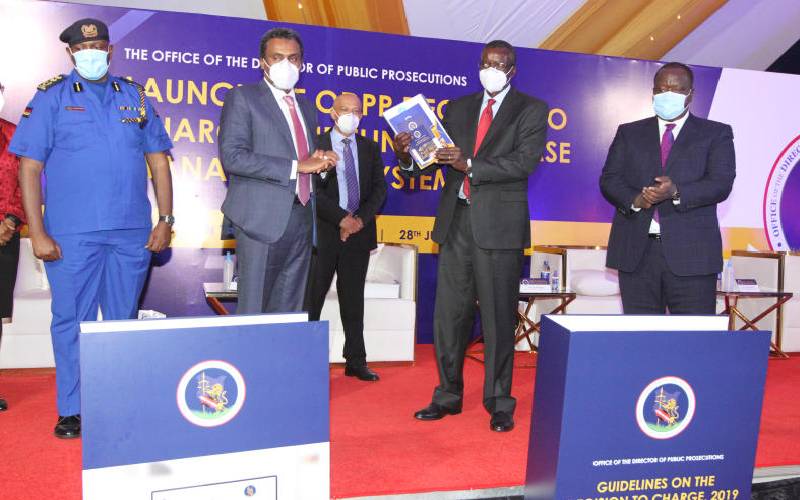
Inspector General Police Service Hillary Mutyambai, Director of Public Prosecution Noordin Hajji, Chief Justice David Maraga, Interior CS Fred Matiangi during the launch of Office of the Director of Public Prosecution (ODPP) Decision to Charge Guidelines and Case Management systems at the Prosecution Training Institute in Nairobi. [Elvis Ogina, Standard]
In a move that could further seal his fate, Directorate of Criminal Investigations boss George Kinoti yesterday snubbed a government meeting that ratified new policy guidelines that will affect the operations of his office significantly.